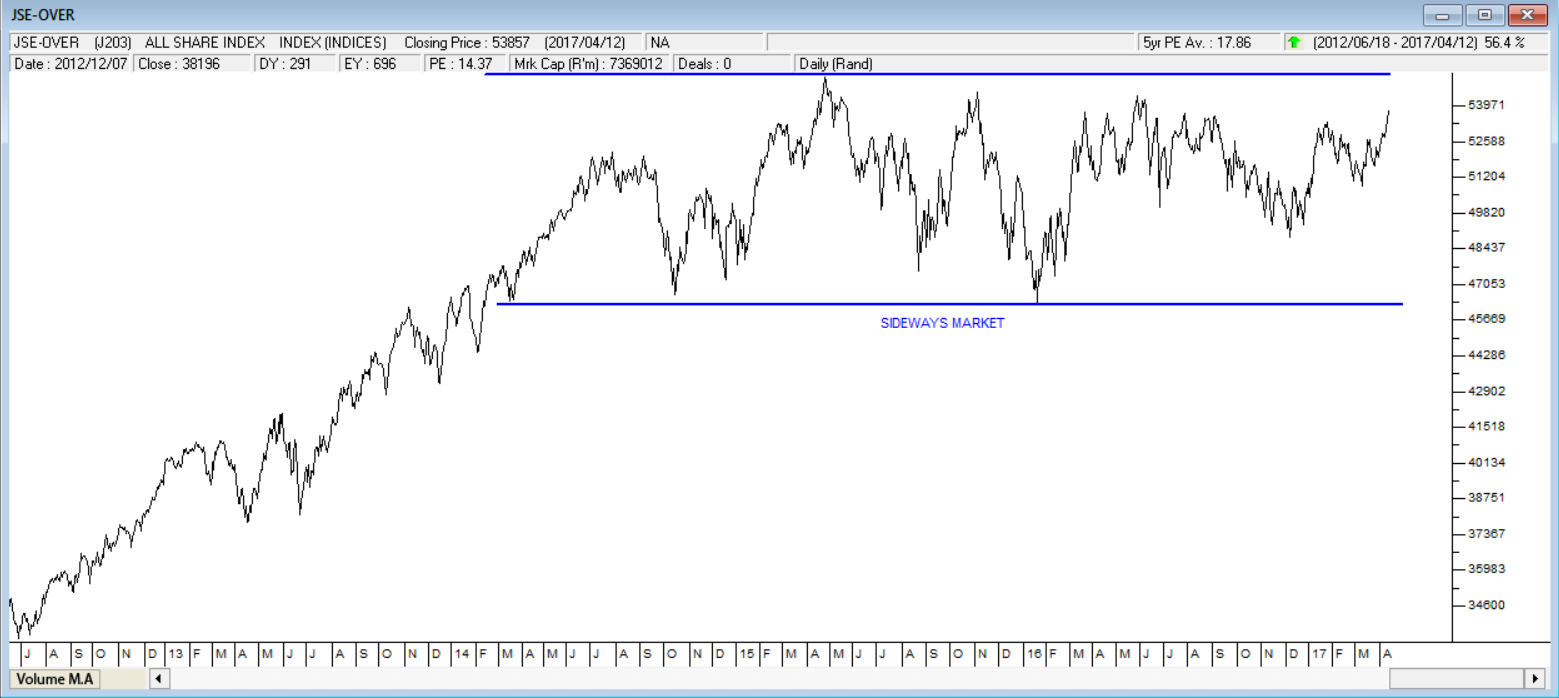Are we now in a Bear Trend?
The president has delivered a shattering blow to the South African economy. Just as the economy was beginning to show definite signs of renewed optimism, South African consumers have been frightened into pulling their heads back into their shells. When consumers and businesses are scared, they typically stop spending and conserve cash to cope with whatever the new uncertainties may occur. This will reduce the sales of white goods and big ticket items like motor vehicles. It will result in major investment projects being curtailed or abandoned and it will result in consumers trading down to cheaper products.
Economists and analysts will undoubtedly modify their forecasts downwards to reflect the new somber mood. So the mood is bearish but are we actually in a bear market? To answer that question, we need to look at the charts because they will tell what the smart money is doing. And the charts are pointing in the opposite direction to the mood. The charts are saying that the great bull market which began in 2009 is continuing, in fact, it is probably accelerating. Consider our very own JSE Overall index: 
JSE Overall Index Chart by ShareFriend Pro
This shows that we have been in a sideways market since September 2015, about two-and-a-half years. But in the last six months, the overall index has started to move strongly back towards the upper resistance line on that chart and the news of Gordhan's firing and the ratings downgrade have had no real impact on that steady upward trend. There are probably three main reasons for that:
- The drought has ended with a bang. This year's maize crop will be almost double last year's. The impact of this is immediate, we will export about R6,5 billion worth of maize, bringing in valuable foreign currency. But what is not recognised is the impact of a good rainy season on the millions of subsistence farmers in this country who scratch their food out of a small plot of mealies and vegetables. They will be far, far better off than last year - and that will have a ground-swell impact throughout the economy.
- Commodity prices are much stronger. The iron price has virtually doubled, chrome is up, gold and platinum are up and coal is up. This impacts the lives of thousands of workers in the mining industry as well as on our balance of payments.
- The US economy and the world economy are looking much better, which creates demand for all our exports, from motor vehicles to wine and diamonds. The impact of a recovering world economy on South Africa cannot be over-emphasised. Our economy is still an export-led economy. Our recoveries always begin overseas.
So Mr. Zuma has undoubtedly done a very stupid thing, which shows clearly that he cares nothing for the economy or the millions of poor people who depend on it, but the South African economy is resilient and will capitalise on the factors mentioned above. In other words, we will probably go into a boom despite scoring a mammoth own-goal. And that is reflected in the charts. Perhaps, as a private investor you should remember Warren Buffet's words: "Be greedy when others are fearful..." and prepare yourself to buy in when the negativity is at its peak. The Confidential Report is presented as a webinar monthly by PDSnet and includes a single comprehensive report covering the month and providing an overview of factors impacting the JSE including, political developments, international markets, the local economy, commodities, currencies, individual JSE-listed stocks, and much more.
← Back to Articles